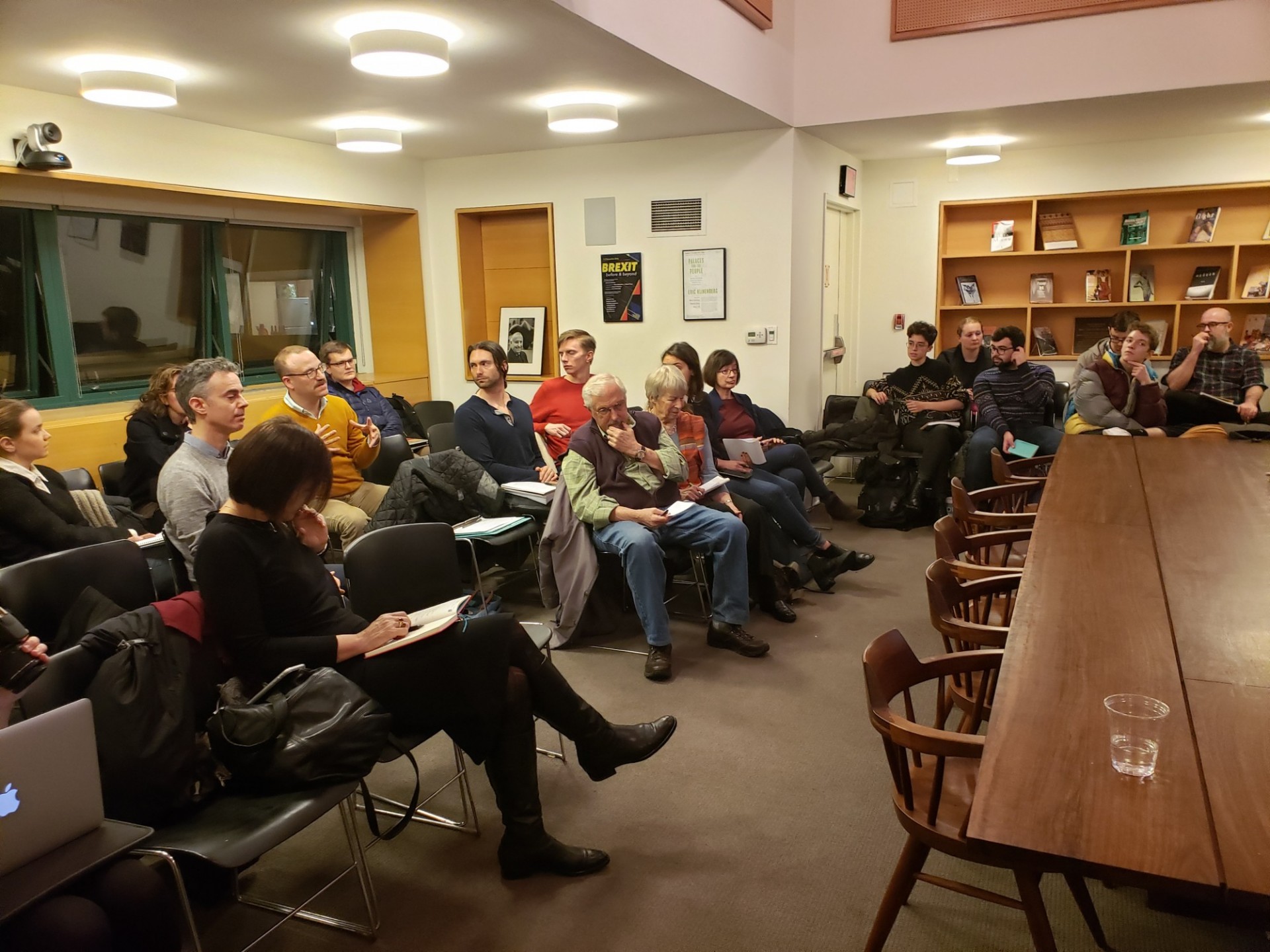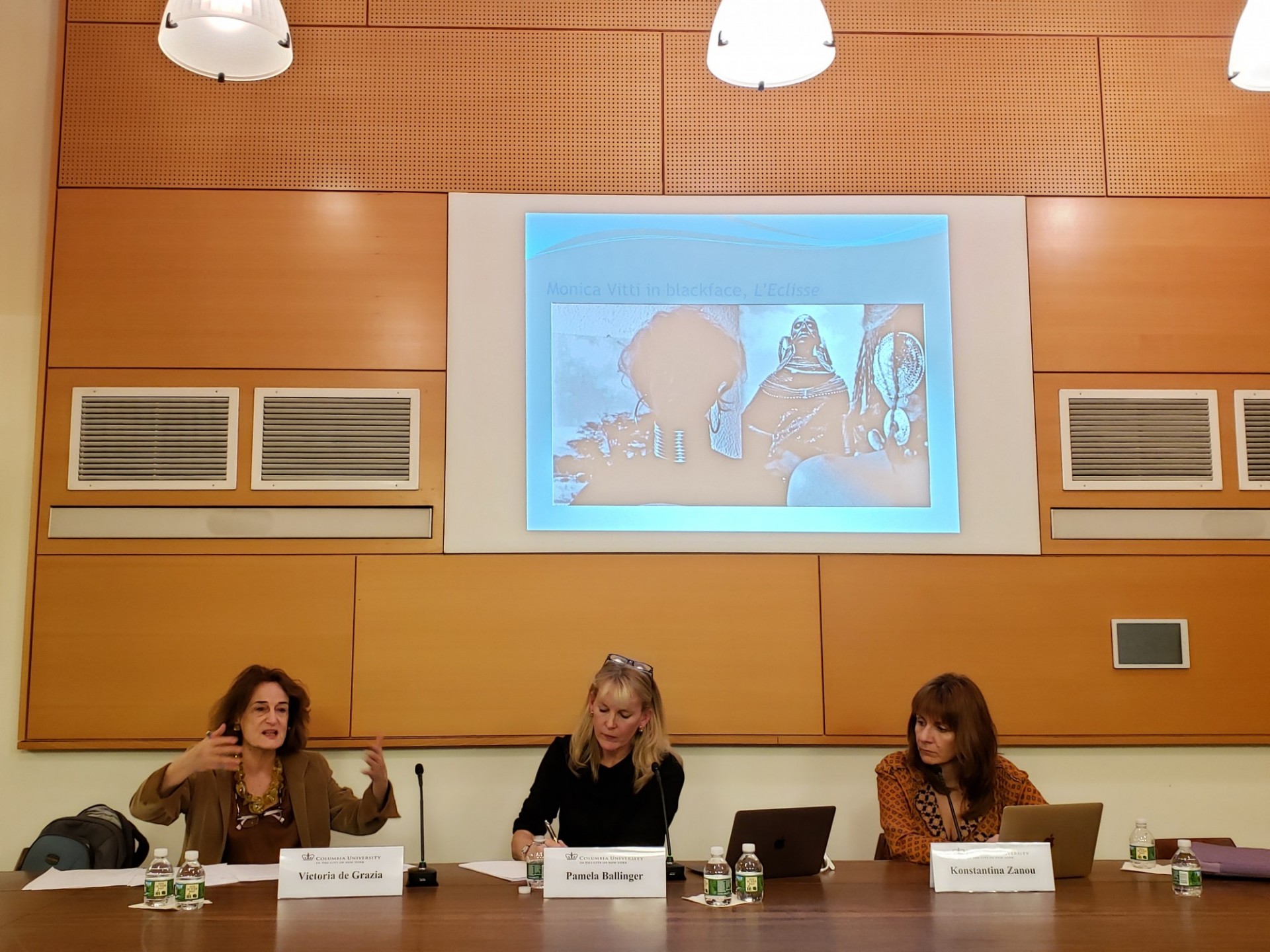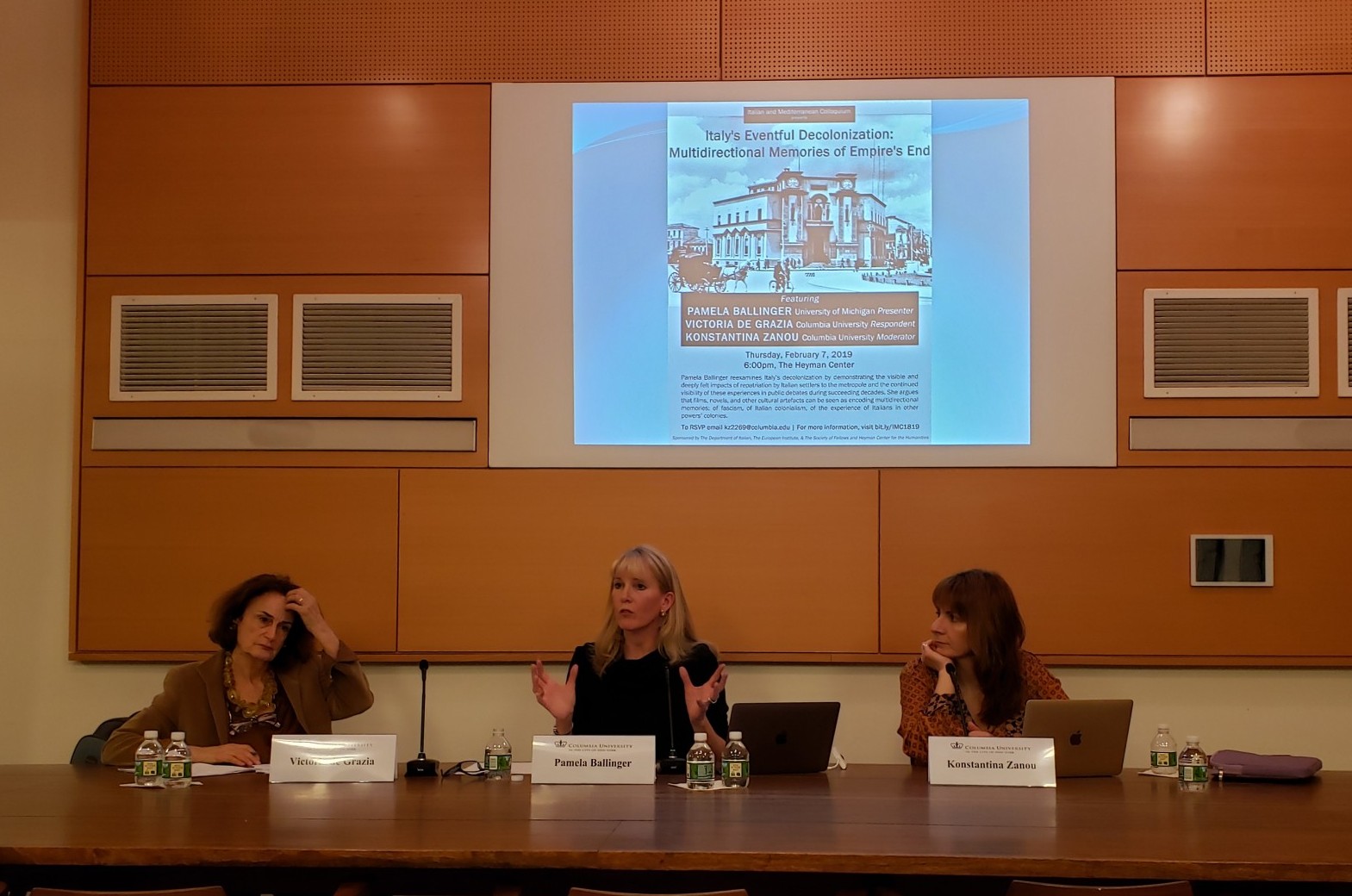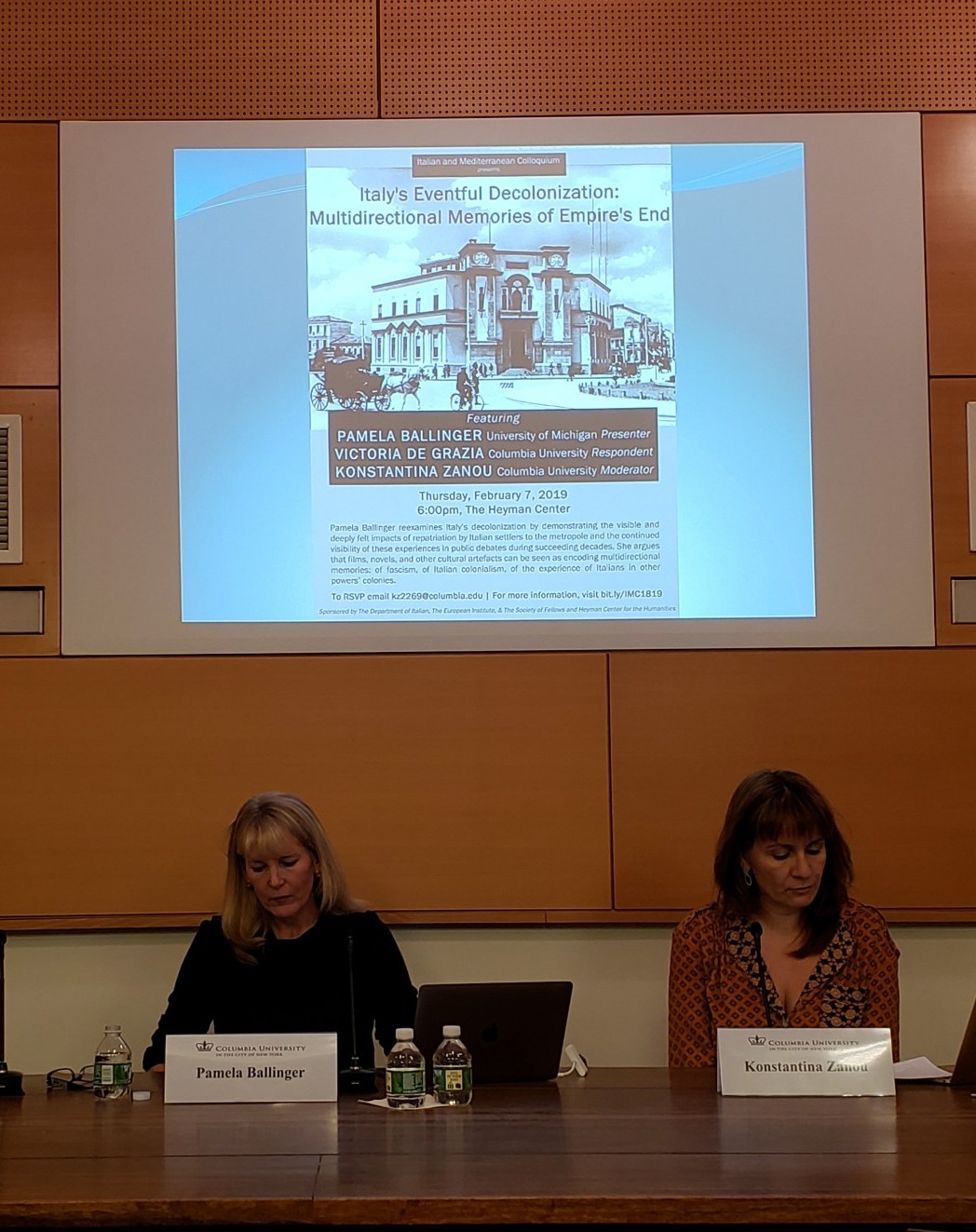Recap: "Italy’s Decolonization: Multidirectional Memories of Empire’s End"
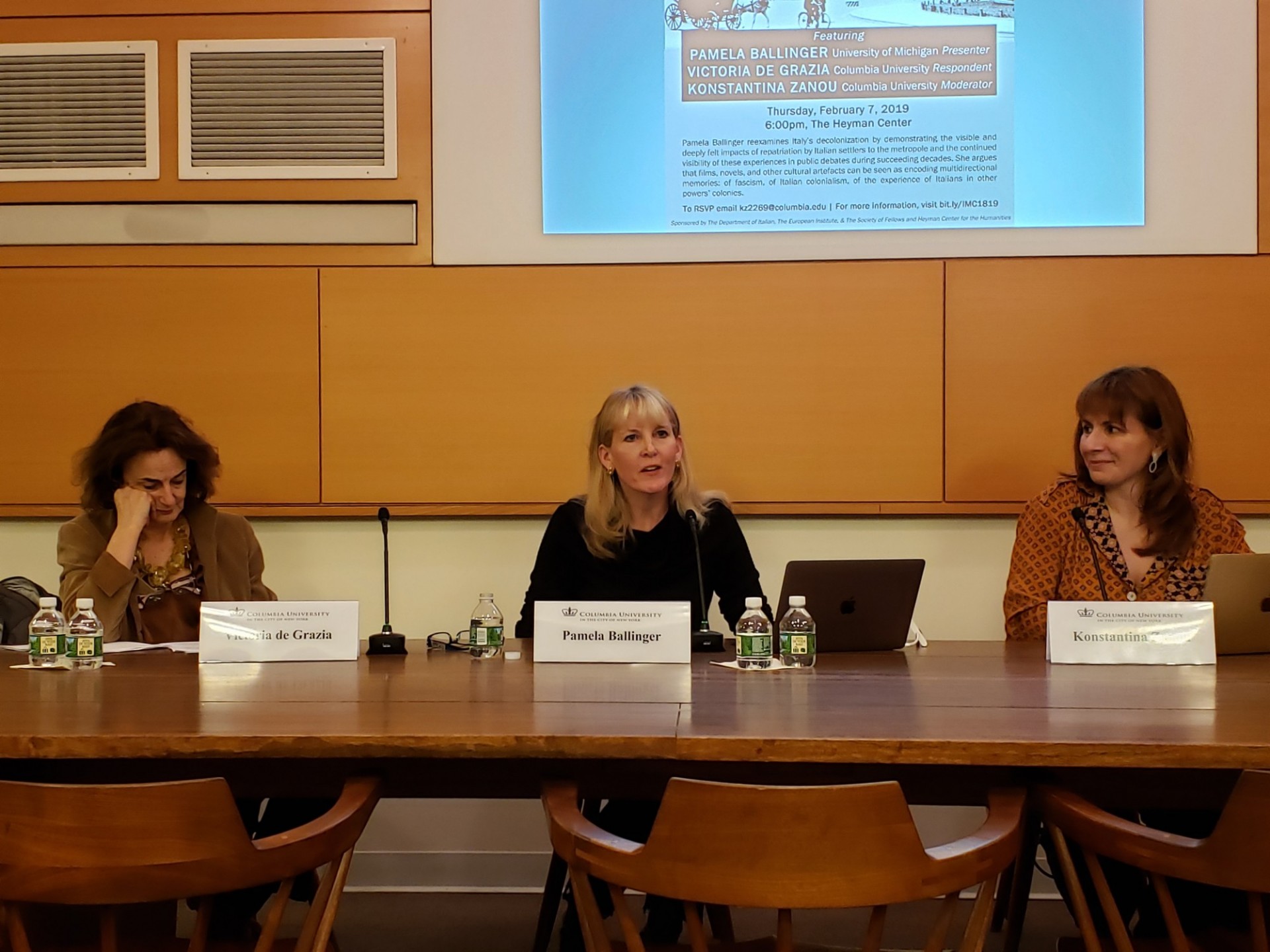
Yesterday, the Italian and Mediterranean Colloquium, The Society of Fellows and Heyman Center for the Humanities, and the European Institute provided an opportunity to hear from some very distinguished scholars on the topic, “Italy’s Decolonization: Multidirectional Memories of Empire’s End.” The main part of the event was a talk from University of Michigan Professor and author of History and Exile: Memory and Identity at the Borders of the Balkans, Pamela Ballinger, which will be summarized in more detail below. We were also fortunate to hear from some of our own faculty, Professors Victoria de Grazia (Respondent) and Konstantina Zanou (Moderator).
Ballinger’s talk was essentially an exploration of the benefits and drawbacks of using contemporary understandings of trauma to explain the multidirectionality of collective memory in Italy surrounding the decolonization of the Italian Empire. She stated that researching topics pertaining to Italian empire presents many problems for a variety of reasons--one of those issues being that many do not believe the decolonization of Italy was significant enough to be studied in further detail today. However, using her own analysis of archival and other historical evidence, Ballinger argued that the traumatic outcomes of Italy’s decolonization in the 20th century are among the reasons why study of Italy’s colonial citizens post-colonization is critical.
More specifically, in her presentation, Ballinger focused on the buildings and governmental programs used to accommodate homeless Italian nationals repatriating from the dissolved Italian colonies. She mentioned that people coming back to Italy from certain regions were privileged over Italians from other regions, and that there was an explicit bias in the Italian government against allowing poor Italians to return to their homeland. For example, the Italian government was more open to having people come from the Venezia Giulia region than from Libya; the government also attempted to keep poor Italian nationals from coming to Italy by portraying conditions at home as worse than they may have actually been.
Ballinger also explained that Italian film, TV, comics, and even trading cards from the mid-1900s can lend us a fuller perspective on how the Italian people might have been dealing with the trauma of decolonization at the time. Although many have argued that there was an effort of sorts to ignore the decolonization of the Italian empire in film, Ballinger wants us to start asking more questions about these widely-held assumptions. Indeed, Ballinger points us to the likelihood that decolonization was addressed in mid-1900s Italian media more than we might currently think. One specific example Ballinger gave to illustrate this point was the film, L’eclisse (1962), which provides a direct commentary on decolonization and features an Italian woman in blackface to represent a woman from Africa. There is much more evidence that Italy was trying to deal with a painful present at the time, but Ballinger noted that this area requires further research.
After the talk, we heard briefly from Professor Victoria de Grazia, who posed new possibilities for the ways we should conceptualize the history of imperialist Italy. The main point de Grazia emphasized in her commentary was that there is much to gain from putting the Italy of the 20th century into the context of other empires that existed around the same time. De Grazia also suggested that we take the idea of Italian exceptionalism in colonial history and deconstruct assumptions inherent to that narrative. She stated that we need to find out what is actually exceptional about Italian imperialism, as opposed to what many simply believe is exceptional about the Italian colonial empire.
Following Ballinger’s talk and de Grazia’s commentary, there was a Q&A moderated by Professor Konstantina Zanou in which members of the audience were able engage in a more in-depth discussion with Ballinger about her current research with the Decolonization and Trauma Project. Overall, the event was a fascinating commentary on the meeting of the multidirectional memories surrounding the traumatic events of Italian decolonization.
